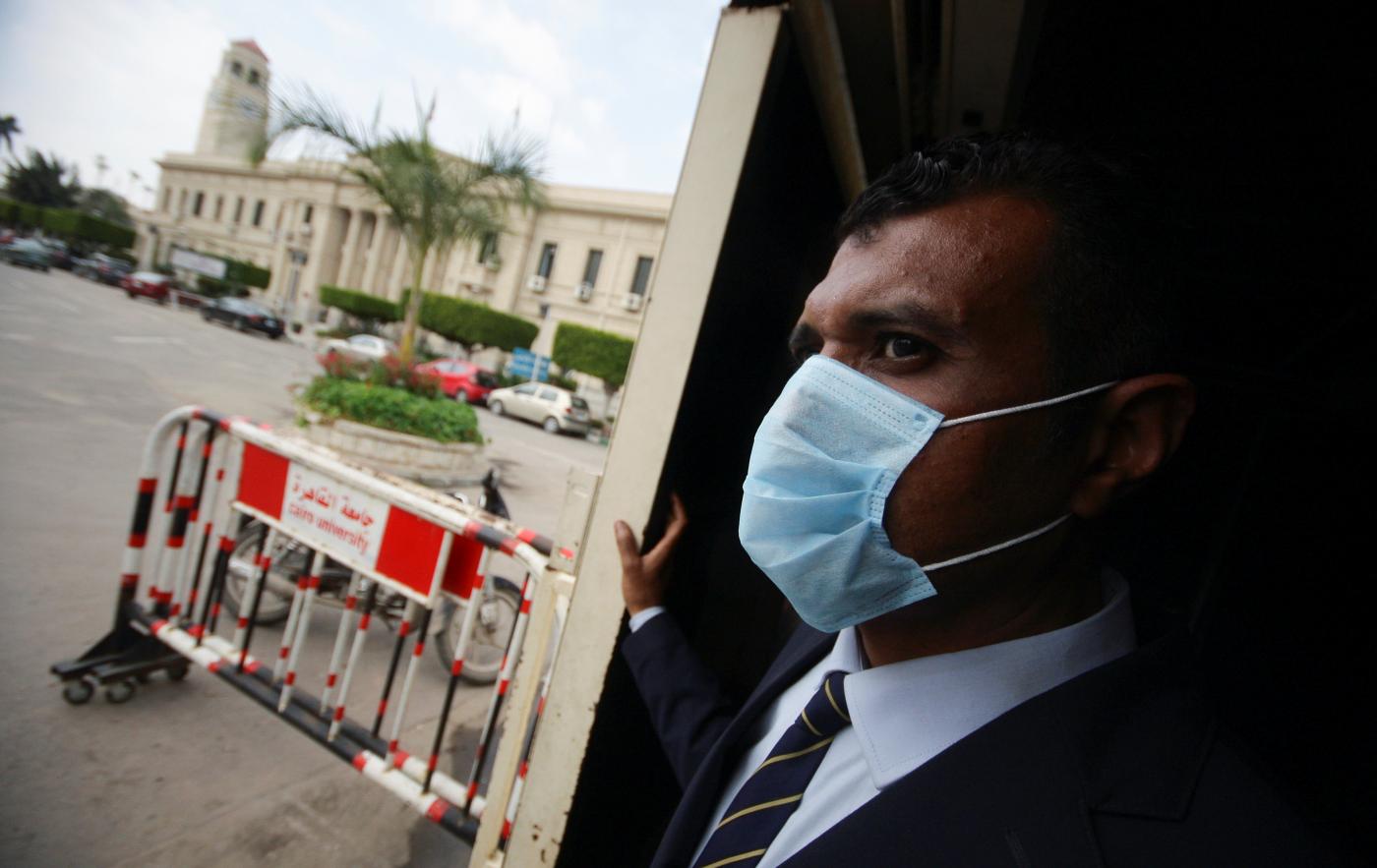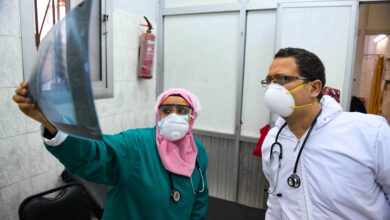
Egypt on Friday confirmed eight additional deaths and 120 new coronavirus cases, bringing the country’s number of confirmed total cases so far to 985.
Sixty-six people have died from the virus in Egypt.
The newly infected cases are all Egyptian nationals, except for three foreign nationals, who returned from abroad or were in contact with previously confirmed cases in Egypt, Health Ministry Spokesperson Khaled Megahed said, adding that the total number of fully-recovered cases rose to 216 on Friday, all of whom have been discharged from isolation hospitals.
Fifteen cases left quarantine on Friday.
The head of the Egyptian Cabinet’s Crisis Management Chamber Mohamed Abdel Maksoud anticipates that Egypt will enter the third stage of coronavirus transmission soon after hitting 1,000 cases.
Once it hits 1,000 infections and Egypt enters into stage three, infection rates will skyrocket compared to now. Worse still, infection sources will become untraceable to diagnosed cases.
He blamed the spread of the disease on general ignorance among citizens, especially returnees from abroad who did not follow precautionary measures.
On March 24, Prime Minister Mostafa Madbouly imposed a two-week nationwide curfew from seven pm until six am beginning and extended school closures an additional two weeks to fight the spread of coronavirus.
Egypt had already closed mosques and churches across the country, banned shisha at cafes, and asked non-essential stores and shops to close each evening.
Under the curfew announced on Tuesday, shops will be closed from five pm until six am during the week, while stores will be subjected to a complete shutdown on Fridays and Saturdays.
However, the closure decisions do not include bakeries, pharmacies, grocery stores or supermarkets outside shopping centers, Madbouly said, while restaurants will be limited to home delivery only.
Cafes have been shuttered completely.
President Abdel Fattah al-Sisi also previously announced a LE100 billion comprehensive plan to counter the outbreak and its negative economic consequences, while the Central Bank of Egypt has adopted various measures to cushion the economy as harsh measures are implemented to contain the outbreak.
These include a three percent interest rate cut, providing loans to tourist establishments with repayment terms of up to two years, and an injection of LE20 billion, or $US 1.27 billion, to support the stock market.




